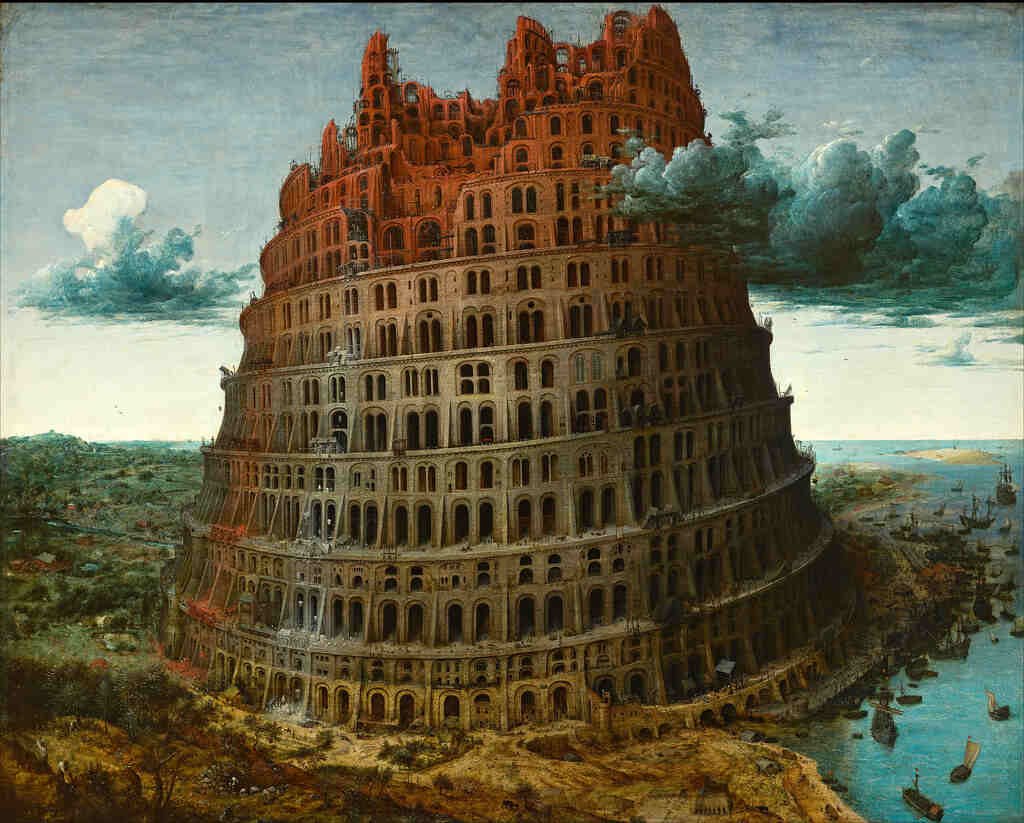Imagine a time when the world was full of people who spoke the same language and lived together in harmony. These people were advanced and ambitious, so they decided to build a tower that would reach the heavens. They thought that by doing so, they could make a name for themselves and show the world what they were capable of.
As they began building the tower, they imagined the glory they would receive once it was completed. They thought that they would become so great that even God would be impressed by their achievements. But God saw their pride and arrogance and knew that this was not a good thing. He decided to intervene in a way that would teach them a lesson they would never forget.
One day, the people woke up to find that they could no longer communicate with one another. They tried to speak, but their words came out in a jumbled mess. The builders couldn’t understand the masons, and the masons couldn’t understand the carpenters. The work on the tower ground to a halt, and the people were left confused and disoriented.
The confusion in language caused chaos, and the people were no longer able to work together. The once-unified community became divided, and the builders could no longer cooperate. The work on the tower stopped, and it was never completed. As the people tried to make sense of what had happened, they realized that they could no longer live together. They were no longer able to communicate and work together as they had before.
So, the people began to migrate to different parts of the earth, forming different cultures and languages. The Tower of Babel was left incomplete, and it became a symbol of human pride and folly. It was a monument to the fact that humans were not meant to become like God, but rather to submit to his will. The story of the Tower of Babel serves as a reminder of the importance of humility and the dangers of pride.
In conclusion, the Tower of Babel is a story that reminds us of the importance of humility and unity. It shows us that when we become too proud and arrogant, we risk dividing ourselves and losing our ability to communicate and work together. It is a powerful reminder that we should always strive to be humble and work towards common goals, rather than trying to become great on our own. The story of the Tower of Babel is a timeless tale that continues to inspire and teach us valuable lessons to this day.
Summary
The Tower of Babel is a biblical story that tells of a time when all people spoke the same language and decided to build a tower that would reach the heavens. However, God saw this as an act of arrogance and intervened by causing confusion in their language so they could no longer understand one another. As a result, the people were scattered across the earth and different languages were formed. The story is often seen as a cautionary tale about the dangers of pride and the importance of unity.
Frequently Asked Questions
A: The Tower of Babel is a story from the Bible that tells the tale of a group of people who spoke the same language and decided to build a tower that would reach the heavens. As a result of their pride and arrogance, God intervened and confused their language, causing their work to halt and their community to become divided.
A: God confused their language as a way of teaching them a lesson about humility and the dangers of pride. The people’s ambition and desire for greatness had led them to believe that they could become like God, which was not what God intended for them.
A: The Tower of Babel teaches us the importance of humility and the dangers of pride. It shows us that when we become too proud and arrogant, we risk dividing ourselves and losing our ability to communicate and work together. We should always strive to be humble and work towards common goals, rather than trying to become great on our own.
A: The Tower of Babel is not a real tower in the physical sense. It is a story from the Bible that serves as a metaphor for the dangers of pride and the importance of humility.
A: The story of the Tower of Babel can be found in the book of Genesis, in the Old Testament of the Bible.








